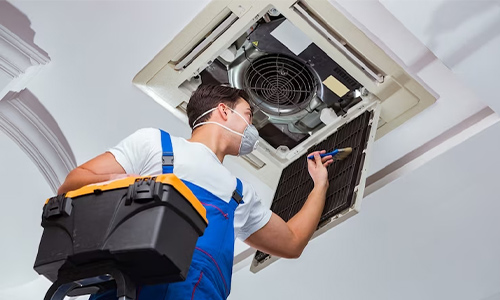Signs It’s Time to Upgrade Your Air Conditioning Unit
Is your air conditioning unit showing signs of wear and tear? As the summer heat approaches, it’s crucial to ensure that your AC system is up to the task of keeping your home cool and comfortable. In this blog post, we’ll explore the key signs that indicate it might be time to upgrade your air conditioning unit. From increased energy bills to decreased cooling efficiency and strange noises, recognizing these indicators can help you make an informed decision about investing in a new, more efficient AC unit. Stay tuned to learn more about when to upgrade and how it can benefit your home.
Certainly! Here are some signs that indicate it’s time to upgrade your air conditioning unit:
- Age of the Unit: If your air conditioner is more than 10-15 years old, it may be time to consider upgrading. Older units tend to be less energy-efficient and may require frequent repairs.
- Frequent Repairs: If you find yourself calling for repairs on a regular basis, it could be a sign that your AC unit is nearing the end of its lifespan. Investing in a new unit can save you money in the long run compared to continuously repairing an old one.
- Decreased Cooling Efficiency: If you notice that your AC isn’t cooling your home as effectively as it used to, or if some rooms feel warmer than others, it could be a sign of a failing unit. Upgrading to a newer model with better cooling capacity can improve comfort levels.
- Increased Energy Bills: As air conditioners age, they tend to become less efficient, leading to higher energy consumption and increased utility bills. Upgrading to an energy-efficient unit can help lower your monthly cooling costs.
- Strange Noises or Odors: Unusual noises such as grinding, banging, or squealing, as well as strange odors when the AC is running, can indicate mechanical issues that may warrant a replacement.
- Poor Indoor Air Quality: If you notice an increase in dust, allergens, or humidity levels despite regular maintenance, it could be a sign that your AC unit is no longer effectively filtering and dehumidifying the air. Upgrading to a unit with better air filtration and humidity control can improve indoor air quality.
- Compatibility with New Technologies: If you’re looking to integrate smart thermostats or other advanced technologies into your home HVAC system, upgrading to a newer AC unit may be necessary to ensure compatibility and optimal performance.
- Environmental Considerations: Newer air conditioning units often use refrigerants that are more environmentally friendly and compliant with current regulations. Upgrading can help reduce your carbon footprint and contribute to a greener environment.
- Home Renovations or Additions: If you’ve recently renovated your home or added new rooms, your existing AC unit may no longer be adequately sized to cool the expanded space. Upgrading to a unit with the right capacity can ensure even cooling throughout your home.
- Manufacturer’s Warranty: If your AC unit is no longer under warranty and major components start failing, the cost of repairs can quickly add up. Upgrading to a new unit with a warranty can provide peace of mind and protect you from unexpected expenses.
It’s important to consult with a professional HVAC technician to assess your specific situation and determine the best course of action for upgrading your air conditioning unit.




